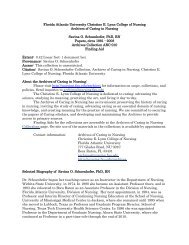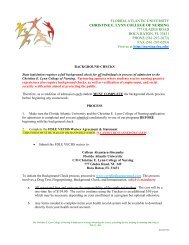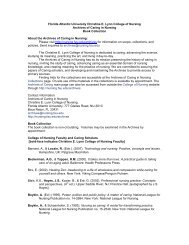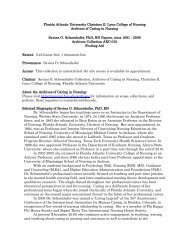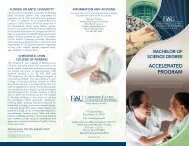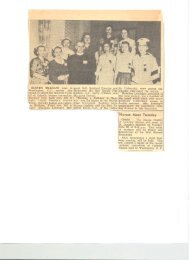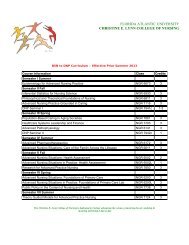âWHAT CAN A LITERATURE REVIEW DO FOR ME?â HOW TO ...
âWHAT CAN A LITERATURE REVIEW DO FOR ME?â HOW TO ...
âWHAT CAN A LITERATURE REVIEW DO FOR ME?â HOW TO ...
You also want an ePaper? Increase the reach of your titles
YUMPU automatically turns print PDFs into web optimized ePapers that Google loves.
What can a literature review do for me? How to research, write, and survive a literature review. Page 4Hilton Obenzinger© Copyright 2005 Stanford UniversityThe conventions in natural sciences and many social sciences call for an“explicit” or “overt” Literature Review. A specific chapter or sectionrelates the history of previous research with a rationale for the workcurrently undertaken clearly in mind.Literary and historical studies often call for an “implicit” or “covert”Literature Review. This means that a thorough knowledge of the criticalor historical literature is assumed and works are referenced in the bodyof the essay as part of the process of discussion or analysis. The authorraises another critic’s or historian’s work only when it is necessary tomake a point or identify a gap in the field.In most cases, a Literature Review does NOT include every bit of researchdone on the topic, but the researcher selects only the most significanttexts. This already implies a process of evaluation and prioritization evenbefore the Literature Review is written. The guidance of faculty or theresearcher’s own experience helps to determine the quality of sources.Or, if a source is referenced regularly by other researchers, it can beassumed to be valid and valuable and therefore must be addressed. Youneed to work with advisors, librarians, and others in the field to makesure that you review all the literature necessary for your work.A Literature Review is a piece of discursive writing that argues someposition or point of view about research (notably, why your researchneeds to be done). In order to write it, you need to know what yourthesis, problem or research question the Literature Review will help todefine or clarify. Often, in order to decide upon a topic or question topurse, you will review the literature in the field, but by the time youactually write the Literature Review, you are clear about your topic.You need to determine the scope of your literature review and what typesof literature you are reviewing. Often, this is determined by the nature ofyour study.Literature Reviews usually follow a few key rhetorical patterns. Oftenthese patterns are employed in combinations. Here are a few examplesof rhetorical patterns, described in informal terms:ROAD MAP: The researcher traces the history of knowledge in thisfield, one achievement after another, one study building on thework of the previous one, all of which points to one destinationwhich happens to be the current work.DÉJÀ VU ALL OVER AGAIN: The researcher identifies currentknowledge, even existing methodology, but argues for some kind ofreplication for verification or variation such as a different sample



